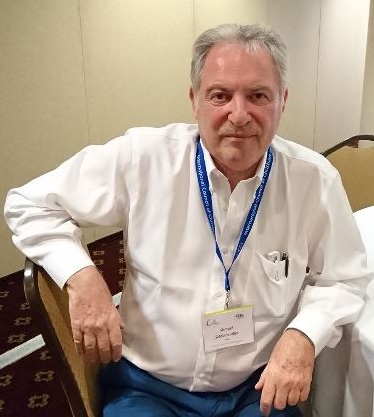Rabbi Samuel Szteinhendler
Chile | ICCJ 2nd Vice President

Describe how you became involved in interreligious dialogue and in the ICCJ:
I have been involved in the field of Christian Jewish dialogue and relations since serving as a rabbi in Guadalajara, México. Here in Chile I got to know the ICCJ years ago during the visit of Father John Pavlikowsky and through him I became more involved in the work in this field, becoming president of the local Council of Christian and Jews and keeping in close contact with the ICCJ. Prior to 2014 we received the invitation to host the 2014 conference in Argentina, and being in the region I decided to participate and get involved more in the important work of the ICCJ. During that conference, my name was considered at the election of the new board and I was honored to become a member of the ExBo.
Tell us something about your first ICCJ conference:
My first conference with the ICCJ was in Buenos Aires in 2014. It was a marvelous experience to get to know so many people from around the world involved in this important and challenging work, nurturing and promoting the building of bridges within the framework of Christian Jewish dialogue and the International Abrahamic Forum as well. A great enriching experience.
Tell us briefly about your most powerful ICCJ memory:
Our meetings in Rome 2015, sharing with wonderful people from all over the world, such as Rev Armin Ilhe who passed away later that year.
How do you see the ICCJ evolving in the future:
There is a lot of work ahead to be done, strengthen links and contacts, building more strong bridges, reaching out to countries and places where there isn’t a local national council yet, or if there is a dormant one – enable and help them to restart their council.
What/which questions are the closest to your heart:
How can we bring on board more young leadership to get involved in our important work?
We need to work strongly in getting our organization more known and present in the international discourse.
What is the greatest challenge you think the ICCJ will face in the coming years:
Being able to respond to so many requests and needs that appear during the path we are fostering and to put together a strategic plan that should include the instruments to generate regular income of funding besides the existing ones.
What advice would you give to someone who is just getting involved in the ICCJ:
Keep in touch, ask, search, suggest and recommend what needs to be done and how, help us transform any threat and challenge to opportunities toward a more active presence all over the world
